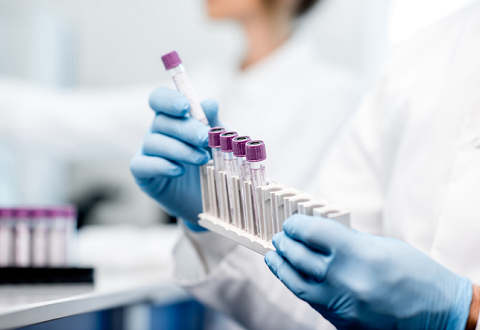New tech aids Singapore leap to launch Covid-19 vaccine

Duke-National University of Singapore (NUS) Medical School
By Ivan Lim
Former AJA President, Contributor to AsiaN
SINGAPORE: Singapore, which clocked a low of 42 new daily infections on Wednesday, has joined in the fast-tracked global race to find a Covid-19 vaccine, starting early tests with a newer type of technology.
About 100 volunteers, aged between 21 and 55, have been recruited by the SingHealth Investigational Medicine Unit for vaccinations in combined phase I and II human trials for the Lunar-Cov19 vaccine.
A joint effort of Duke-National University of Singapore (NUS) Medical School and US drug firm Therapeutics, its efficacy relies on new biological technology.
They are the first group volunteers who will be injected with a single shot of the experimental vaccine. The result will be used to determine the dosage for the next phase of trials that will involve volunteers aged 56 to 80.
According to reports, in traditional methods, an inactivated or weakened form of the virus is injected into the body, which sees the virus and generates anti-bodies of T-cells to fight the virus. In the case of Covid-19, only parts of the viral genetic material are injected. This will cause the cell to recognise a special feature of Coronavirus — its spike protein.
Associate professor Jenny Low was quoted as saying the pre-clinical trials were promising and the next step would be to ensure it could stimulate the body’s T-cell defences against the infection. Currently, there are 26 candidate vaccines undergoing different stages of clinical trials.
The race to be the first with a safe and effective vaccine has become so intense that some front-runners took to claiming victory in their own right.
Russia has already announced that it has approved the use of a vaccine developed by Moscow’s Gamaleya Institute, after less than two months of human testing. To show that it is safe and effective, President Vladimir Putin said the vaccine had been given to one of his daughters, saying on TV “I know that it works quite effectively, forms strong immunity, and I repeat, it has passed all the needed checks.”
Politically, the Russian “success” has been hailed as “Sputnik moment” reminiscent of the Soviet Union’s launch of its Sputnik satellite into the space ahead of the United States on Oct 4, 1957.
In the same vein, India has declared that has a vaccine for Covid-19 ready for the country’s Independence Day on August 15. The Covaxin is jointly developed by drug-maker Bharat Biotech, India Centre of Medical Research and the National Institute of Virology.
Close behind, the Serum Institute of India, the world’s largest vaccine producer in terms of volume, has begun production of ChAdox1, an experimental vaccine of Oxford University and AstraZeneca, now on phase III clinical trials with a target of three million doses this month.
Not to be outdone, the United States in May launched Operation Warp Speed (OWS) to leapfrog the process of finding a proven vaccine under a US$10 billion funding deal with several leading pharmaceutical biomedical companies – Moderna, Johnson & Johnson, Merck, AstraZeneca, GlaxoSmithCKline, Sanofi and Pfizer – with potential vaccines in various stages of clinical trials
The OWS target: 300 million doses of proven vaccines by 2021. This is a 12 to 16 month advance on normal two-year timeline of vaccine production.
In early August, however, President Donald Trump held out the promise that a foolproof vaccine might be in hand before the Nov 3 presidential election.
As the final lap of the race seems in sight, China is surging ahead with three candidate vaccines in end-stage human trials. CanSinoBiologics has resorted to inoculating People’s Liberation Army (PLA) soldiers, thereby skipping the final clinical trials.
Likewise, China National Pharmaceutical Company, SinoPharma, has taken to double-barrel tests on its senior staff and on 15,000 volunteers in Abu Dhabi. Using a time-tested method of using inactivated virus, in contrast Western firm’s reliance on newer technology, SinoPharma has made faster progress to promise a safe and effective vaccine for the market by year’s end.
Sinovac Biotech, into final trials on 9,000 volunteers in Brazil, said its potential CoronaVac antidote for Covid-19 should be ready by the end of 2020.
Even as the marathon for finding a Covid-19 vaccine or two has turned into a sprint and the wait for a ‘’magic potion” against the raging Coronavirus topping 20.5 million world-wide infections and 750,000 fatalities to date, may be shortened by international competition, the World Health Organisation has warned that “between having a vaccine that works and having gone through all stages there is a big difference.”



















































